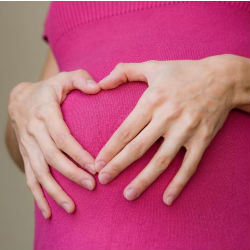 Study Explores Psychosocial Implications Related to Relationships, Marriage and Childbearing
Study Explores Psychosocial Implications Related to Relationships, Marriage and Childbearing
Young women who learn they have BRCA1 and BRCA2 gene mutations feel differently about options for relationships, treatment, childbearing and careers. Women who inherit a BRCA1 mutation have a significantly increased risk of developing breast, ovarian cancer or both. A mutation in BRCA2 increases risk of melanoma and cancers of the pancreas, stomach, and gallbladder. While genetic testing may help a woman manage her risk, it may also cause her to face complicated, life-altering decisions.
Forty-four women ages 18 to 39 from 22 US states and Canada who were found to carry a BRCA mutation were interviewed by phone or e-mail. The findings focused on three characteristics of the participants - whether or not they were married, had children, had breast cancer - and how those characteristics were affected by the women’s knowledge of their genetic risk.
Young women showed concerns surrounding the impact of pregnancy on cancer development, the disruptions on relationships and a sense of discrimination from one’s peers. They were forced to consider options that could prevent the cancer but were ultimately life altering. Questions such as do I have prophylactic mastectomy, hysterectomy or oophorectomy (removal of ovaries); do I have children now, later or at all? Many of the 24 participants who had children reported “staying alive” for their children as a primary goal and expressed concern and guilt that they might have passed the mutation to their children.
It is empowering to have this information which could help prevent the disease from occurring but it also causes worry and could change many life options. Nurses and other health professionals should be sensitive to these potentially difficult decisions facing young women with this mutation and be mindful of the patient’s age, marital and parenting status and her state of health when handling their case.
American Journal of Nursing - October 2012
